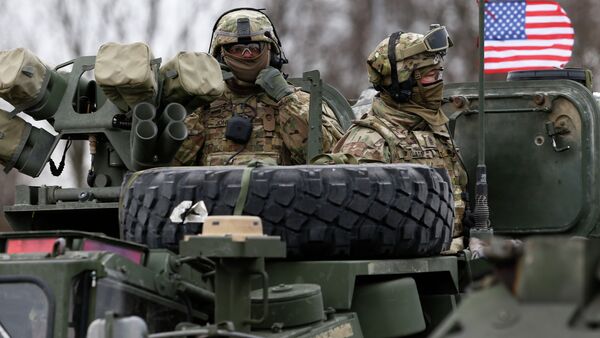Americans should "restrain their impulse" to use the country's military forces when their vital interests are not directly threatened, Christopher Preble, the vice president for defense and foreign policy studies at the Cato Institute, believes.
"Our military is postured to defend our allies' security at least as much as it is to defend our own. The US foreign policy today hinges on a forward-deployed military poised to stop prospective threats before they materialize. It reassures our allies, thus discouraging them from taking steps to defend themselves and their interests," Preble underscored in his article for the National Interest.
However, for the United States it costs a pretty penny to provide urgent military support to its allies.
"But there is an even more dramatic problem underlying US foreign policy today: it requires US leaders to push, prod and occasionally even hoodwink Americans into taking on unnecessary tasks," Preble stressed.
Instead of merely expecting that the American allies will support the US military activities abroad or demanding that they allow Washington to deploy its military forces in their lands, the US should require its allies and partners "to act first," he emphasized.
Indeed, there are lots of threats and challenges in the world, but it does not mean that the US should counter all of them. "An effective national security strategy will prioritize among them and identify the best tools to mitigate them," the expert insists.
However, under the current strategy Washington is expected to deal with all security threats, "in all regions, at all times," Preble highlighted.
According to the expert, it is necessary to separate the wheat from the chaff and to consider which threats the US will be responsible for dealing with, and what will be left for its allies.
"We need a new grand strategy, one that calls on other countries to take primary responsibility for protecting their security and preserving their interests… And we must restrain our impulse to use the US military when our vital interests are not directly threatened," the US foreign policy expert concluded.



